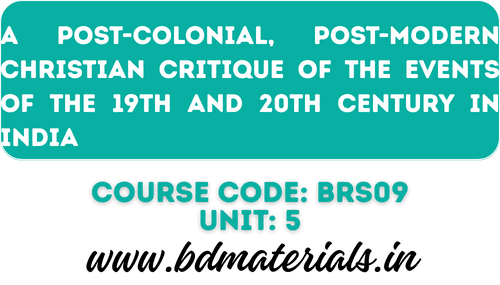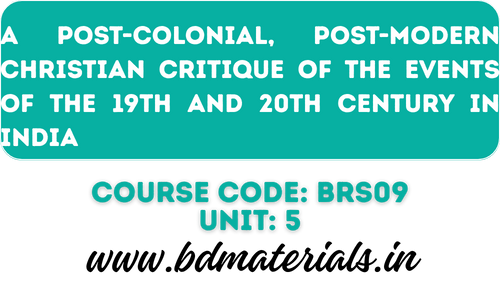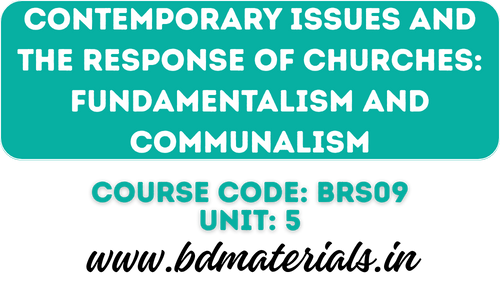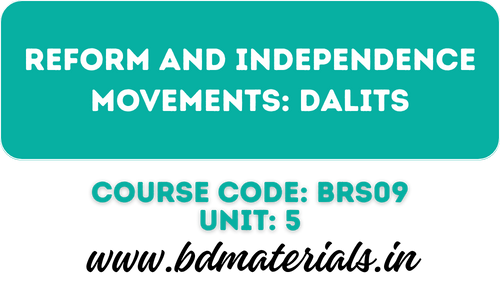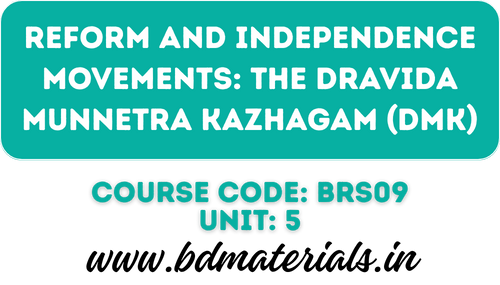Bhoodan Movement
Following the death of Gandhi in 1948, Acharya Vinoba Bhave (Vinayak Narapuri) took over the leadership. Under his insistence, the Sarvodaya Samaj was established in 1948, which was an organisation of those who stood for truth and non-violence. They worked for 10 months among the refugees who came from West Pakistan following the partition of India. They had to face famine conditions and Vinoba decided to eat only vegetables grown by himself, and not to buy any vegetables with money.
This programme is called Kanchana Mukti. Vinoba undertook padayatras((Sanskrit, lit. journey by foot) is a journey undertaken by a politicians or prominent citizens to interact more closely with different parts of society, educate about issues concerning them, and galvanize his or her supporters.) in order to spread the ideals of Sarvodaya.
It was while Vinoba was conducting his padayatra in Telangana that the idea of bhoodan (Landgift) was born in his mind. Some harijans approached him for a gift of land. They were uneducated people. He called the rich landlords of that village and asked who would be willing to share their land with the poor. One young man promised to give 100 acres of land. This incident made Vinoba think and he could not sleep that night.
People used to donate lands for building churches, temples and educational institutions; but donating lands for the poor was unheard of. He felt that he must appeal to the goodness in humankind to respond to the need of others. Next morning Vinoba walked to the next village. When the villagers garlanded him, he said it was not flowers that he needed, but land. There was good response in that village. By June 6th 1951, Vinoba acquired 12,201 acres of land as bhoodan through his padayatra.
Nehru, the then Prime Minister called Vinoba to Delhi to help him in the discussion on the first 5 year plan. He went on foot covering a distance of 792 miles in 62 days. During this padayatra, he received 19,436 acres of land as bhoodan. By March 24th 1954, 27,53,465 acres more land was received. Since then, the bhoodan movement has grown to the level of gramdan, talukdan, Zilladan and statedan.
The mission of the movement was to persuade wealthy landowners to voluntarily give a percentage of their land to the landless people. However, this land could not be sold. In effect, landless labourers were being given a small plot of land on which they can settle, as well as grow some of their own food.
The Government of various Provinces, passed Bhoodan Acts which generally stipulated that the beneficiary had no right to sell the land or use it for a nonagricultural purpose- including forestry. For example, under section 25 of Maharashtra State Bhoodan Act, the beneficiary (who must be landless) should use the land for agricultural cultivation to secure his own and family’s daily bread. If he/she fails to cultivate the land for over a year or tries to use it for some other non-agriculture activities, the government has the right to confiscate it.
The movement though independent of government had the support of congress. JP Narayan withdrew from active politics to join Bhoodan movement in 1953. By 1960s the movement had lost its flame despite its considerable initial promise. The Sarvodaya Samaj, however, on the whole failed to build an active large scale mass movement that would generate irresistible pressure for social transformation in large parts of country. Yet the movement made a significant contribution by creating moral ambience, putting pressure on landlords and created conditions favorable to the landless.
Evaluation
Many critics have criticised Gandhi’s Sarvodaya ideals as impracticable. Though the ideals of sarvodaya are noble and nobody can find fault with them, in the actual world they will be found wanting. It will be almost impossible to establish a society strictly on the basis of great principles by Mahatma Gandhi and others. Sarvodaya doctrines are soaring and it is doubtful whether they can rest on the earth. The poor record of Panchayat Raj in India bears testimony to the backward condition in which people are. In the highly competitive world, one country cannot succeed in having Gramraj.
Unless all states in the world accept the Sarvodaya idea. The chances of having it is a particular country like India are bleak. As well as, it is difficult to bring a change of the heart in the youth, who is given to selfishness. People donated useless land in response to the Bhoodan.
In any case, the non-violent movement started by Gandhi, Vinobha, and others have remained incomplete. The forces of opposition proved stronger. The apathy of the intellectuals and lack of vision meant that no one could understand the real value of the movement. But nevertheless, these movements have enriched our thought process.
The effort continued for two and a half decades. Vinobha spoke at length about it wherever he went and he thought about reforming and reconstructing the society a great deal. The fundamental questions about society were asked and discussed and solutions were sought for them on the basis of non-violence. Many of the concepts in Hind Swaraj were also evaluated and it came into public domain and consciousness.
As a result, in the world arena, the philosophy of Sarvodaya has etched its name very clearly. This has been a major contribution of Vinobha’s movement. The philosophy is above any particular area or time and provides new thoughts about constructing a society. The history of this incomplete movement might say anything, but in the annals of human revolution, Vinobha’s contribution is invaluable.
Friendly Note
Bachelor of Divinity Materials is your go-to resource for comprehensive Biblical studies, supporting students in Bachelor of Divinity (B.D.) and other theological courses. Our platform offers access to the full syllabus, detailed answers, and a vast collection of assignments, study guides, articles, and research papers to help you excel academically.
We provide downloadable PDFs of study materials, including books and journals, for convenient learning anytime, anywhere. Whether preparing for exams or conducting research, our resources cater to both students and scholars in biblical studies.
Committed to empowering theological learners, we aim to deliver high-quality, authentic study materials. Explore Bachelor of Divinity Materials to deepen your understanding of God’s Word and Christian doctrine, making it a valuable resource for aspiring ministers and anyone dedicated to theology.

